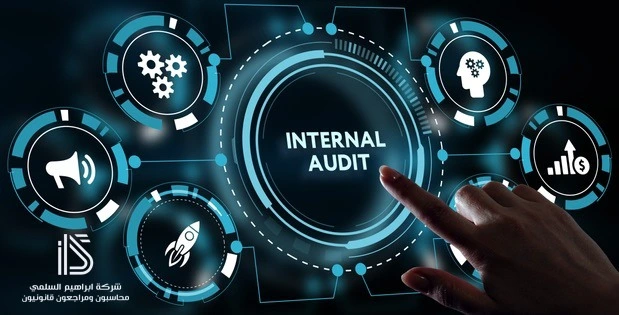Internal Audit and Internal Review in Saudi Arabia
Introduction:
Internal audit and internal review are two important activities for ensuring the integrity and effectiveness of the operations of establishments, companies, and non-profit organizations. They help organizations achieve their goals by providing a systematic and disciplined approach to evaluating and improving the effectiveness of risk management, control, and governance processes.
Internal Audit:
Internal audit is an independent and objective assurance and consulting activity designed to add value and improve an organization’s operations. It helps the organization achieve its objectives by providing a systematic and disciplined approach to evaluating and improving the effectiveness of risk management, control, and governance processes.
Internal Review:
Internal review is an independent and objective assessment activity designed to add value and improve an organization’s operations. It helps the organization achieve its objectives by providing a systematic and disciplined approach to evaluating and improving the effectiveness of risk management, control, and governance processes.
Importance:
Internal audit and internal review play an important role in ensuring the integrity and effectiveness of an organization’s operations. By providing an independent and objective assessment of the organization’s risk management, control, and governance processes, internal auditors help improve the organization’s ability to achieve its goals and protect its assets.
Benefits of Internal Audit and Internal Review:
- Helps to improve the efficiency and effectiveness of operations.
- Helps to identify and mitigate risks.
- Helps to improve compliance with laws and regulations.
- Helps to protect assets.
- Helps to promote good governance.
Steps:
- The internal auditor meets with the organization’s management to discuss the scope of the audit and gain an understanding of the organization’s business.
- The internal auditor reviews the organization’s risk management, control, and governance processes.
- The internal auditor performs tests on the organization’s operations.
- The internal auditor prepares a report that identifies material weaknesses and opportunities for improvement.
Considerations:
- Size and complexity of the organization.
- Nature of the organization’s business.
- Risk profile of the organization.
- Availability of qualified internal auditors.
Al-Salmi Internal Audit Office:
Al-Salmi Internal Audit Office is an accounting firm in Riyadh that provides internal audit and internal review services. The firm has extensive experience in internal audit and provides its services to companies of all sizes and sectors.
Excellence:
Al-Salmi Internal Audit Office is distinguished by its extensive experience and high efficiency. The firm has a team of qualified and specialized internal auditors who provide their services with high quality.
Conclusion:
Internal audit and internal review are two important activities for ensuring the integrity and effectiveness of the operations of establishments, companies, and non-profit organizations. By providing an independent and objective assessment of the organization’s risk management, control, and governance processes, internal auditors help improve the organization’s ability to achieve its goals and protect its assets.
Ibrahim Al-sulmi Company offers a comprehensive range of accounting and consulting services, including accounting, auditing, financial and tax consulting, and handling tax and zakat issues. The company has a distinguished team with high capabilities and practical experience in dealing with all types of cases.
